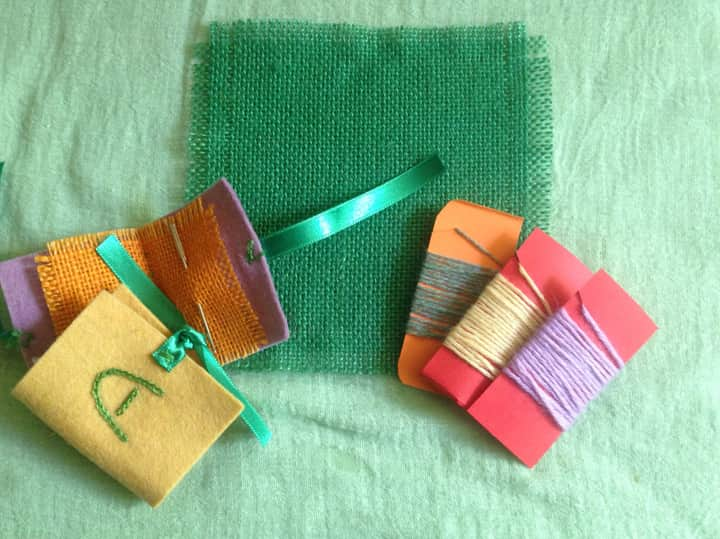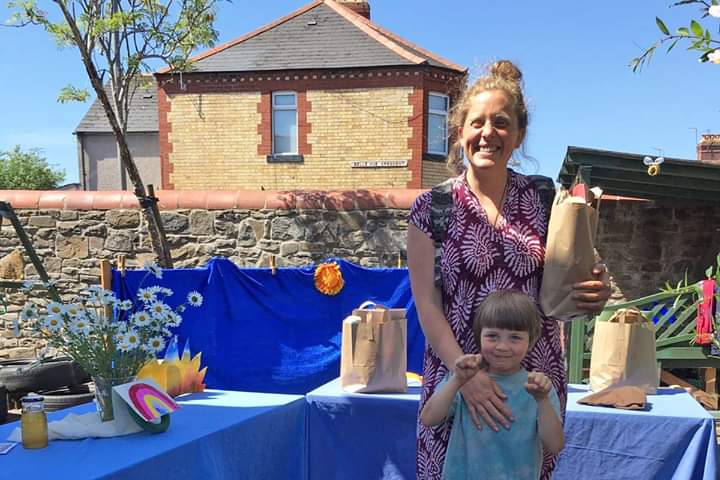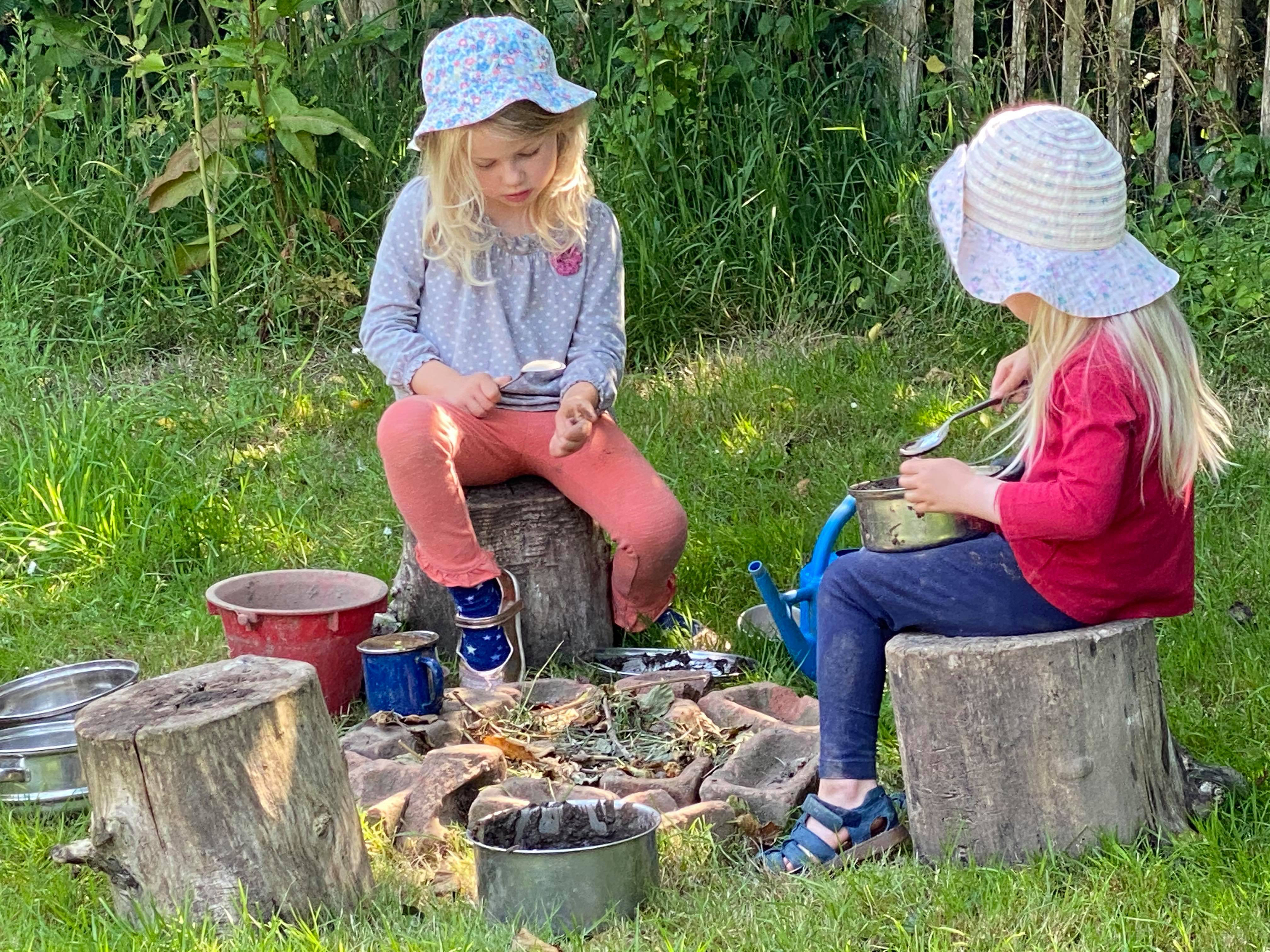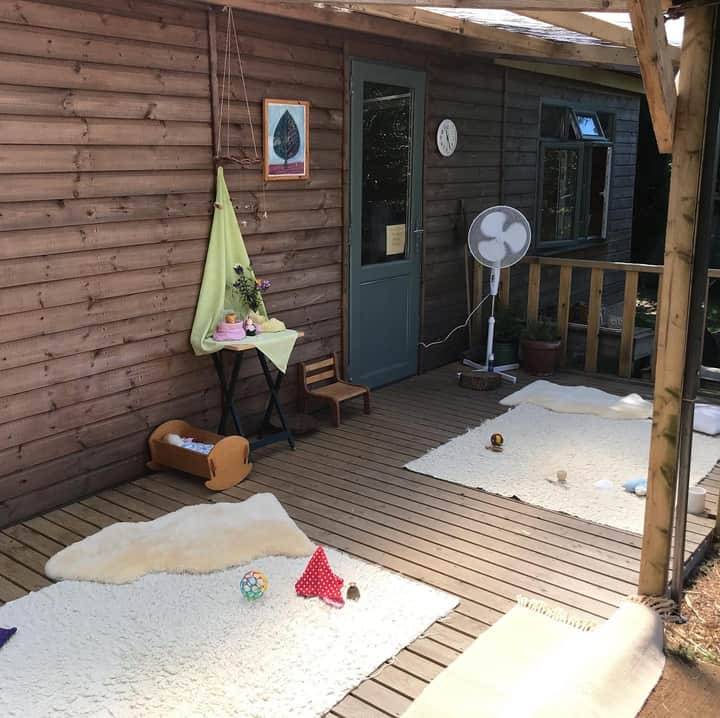
Parents know that their young children attending Steiner kindergartens thrive because of the many things they offer: a welcoming and nurturing social environment, where they can play, learn and discover with other children aged three to six, a natural outdoor environment that offers plenty of opportunities for exploration and physical development; the warmth and beauty of toys and equipment made from natural materials.
Parents also know their children thrive due to established trusting and warm relationships with the adults caring for them. The children benefit from the predictability of the routine, and parents know their child’s well-being has been at the heart of the provision and planning.
In common with all schools and early childhood settings, work with children and families was interrupted as a result of the Coronavirus lockdown. Families became isolated, facing illness, bereavement or concerns about their future.
Amidst the uncertainty, stress and fear, Steiner Kindergarten teachers developed ways to support families, starting from a position of strong connection and an ethos of care that includes parents as well as children. Many kindergartens remained open for key worker and vulnerable children as well.
SUPPORT FOR THE CHILDREN AND PARENTS IN THEIR HOME

Sewing kits were given to each child at May Tree Steiner Kindergarten, New School Canterbury
For those families remaining at home, it was clear from the beginning that the use of technology (not encouraged for children in Steiner Early Years education) was not the appropriate way of communicating with the children.
Instead, the focus was on how to support the parents/carers in caring for their own children. The Steiner Waldorf Schools Fellowship (SWSF) organised a number of webinars for Steiner early years staff at the start and throughout lockdown to provide guidance and support.
They discussed how best they would do this with their families in their particular situations (city or countryside) as we realised the parents needed to be nurtured rather than bombarded with too much ‘home work’. It also did not help that some kindergarten staff were furloughed. Yet, quickly, a number of different ways of support became evident.
Teachers maintained regular contact with families by email or phone calls. They provided parents with details of suitable activities, stories and songs for the whole family, creating beautiful newsletters full of ideas. They reassured parents again and again that they were providing what their children needed by maintaining a predictable routine that involved times of independent play, shared activity and time outside when possible – keeping it simple.
Many kindergartens prepared resources such as bags of craft materials and instructions that parents could pick up from kindergarten weekly, or that were delivered to the families' homes. Teachers organised parents evenings online to keep in touch and maintain the connection of the group.

Cardiff Steiner kindergarten weekly project collection day
Of particular concern was how best to support the learning of the older group of children, the six-year-olds, who are due to join Class 1 in a Steiner school (Year 2) in September.
These children are usually engaged in crafts and activities to develop their focus and attention as well as support their overall readiness for more formal education. Teachers provided materials and instructions along with online videos to enable parents to help children to complete their projects (making skipping ropes and hobby horses or sewing dolls, for example), and maintained regular contact with families to see how the projects were going. Special stories and games were also provided for these older children.
Using all of these means of keeping in touch, teachers kept alive one of the strengths of kindergarten life, and that is our sense of community: a community of parents, carers, children and the early years staff.
REOPENING

Children playing outdoors, New School Canterbury
When some year groups reopened in June, many children went back to kindergarten despite the continuous prevailing sense of uncertainty.
Kindergartens had to adjust to government guidelines and ensured that the children could come back in safely. Some had to change play space and even teacher in order to form the “bubbles”. Yet they quickly adjusted, and parents commented on how happy their children were to be back again. Teachers had been missing the children and the children missed the socialisation, beauty, fun, play and discovery that they can experience in their Steiner kindergarten.
Despite government restrictions, the teachers were remarkably creative in preparing the safe, nurturing, playful, social and beautiful environment the children were used to before the lockdown.
Many of the soft toys and play equipment were removed, but new easily washable items were created and rotated to ensure health and hygiene measures were met. This included dolls, play cloths and home corner items. Most provision was managed outdoors, and creative and artistic activities continued, each child having their own bag of resources such as crayons and scissors for example.
Although the children are used to helping to cook a substantial snack each morning, they quickly became familiar with their packed lunches, and enjoyed having a picnic with their friends. Sandpits were shut, but mud kitchens were reinvigorated and proved invaluable.
Teachers have reported the children’s desire to play, to draw and work through some of the experiences of the past few months of course, but mainly to simply connect with each other, their joy and imagination undiminished by the fear and uncertainty that has been surrounding us all. Support for those remaining home continued. Many kindergartens also ran holiday clubs.
PARENT AND CHILD AND BABY GROUPS

Outdoor Parent and Baby Group at The Family Cabin Steiner community hub
Many group leaders maintained contact with their families online, and as soon as possible, met for walks or picnics, or for small group sessions in the baby groups, where they could maintain social distancing outdoors.
The most important aspect of all this, is that connections with the families and Steiner community have been strengthened, and many parents have reported feeling nurtured, cared for and supported by their teachers and their community.
Photos Amelia Gregory









